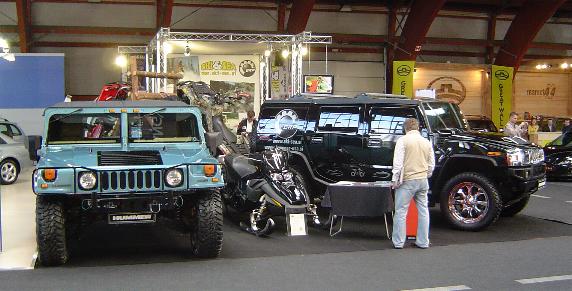

There is no substitute
for energy. The whole edifice of modern society is
built upon it. It is not "just another commodity" but the precondition of
all commodities, a basic factor equal with air, water and earth.
-- E. F. Schumacher (1973)
If we could make a car that drives 700 km per single charge and is connected to off grid solution to power the house in a tiny garage size company, then big car producers could have done it faster, better and cheaper. But it seems there is no will...
We have passed the "peak oil", so we should act immediatelly!
Unfortunatelly what is written HERE might even be true!
It is a well known gas being already used for many purposes in 19th and 20th century (baloons, rocket fuel). It is supposed that it will replace liquid fuels we use now for transportation (gasoline, diesel, kerosine). When I was a child I read about hydrogen cars that actually drove and had good performances, but.... there are two main problems that do not seem to be easily solved:
Biodiesel is produced from vegetable or animal oil, ethanol is produced from vegetable hydro-carbons (corn, potatoes, sugar cane) and bio gas is produced from all kinds of vegetable wastes and animal manure.At first glance it seems to be perfect, but we consume at the moment almost 2 tons of fossile fuels per every person living on Earth (85% of the commercial energy consumed in the World is constituted of fossil fuels). To get enough biofuel we would have to sow 1-2 ha of fertile soil with crops that are used to get biofuel. By simply multipliing 6 billions of people by 2ha we get 12 billions ha of soil what is 120 millions of square km and it is a number far greater then all the land on this planet. Despite this, biofuels could be a good addition to our energy needs.
It has already be used for transportation in late 19th century and is still used by trains, trams and some exotic cars. It has again two main problems. The first is the fact that we get most of the electricity from fossile fuels, so if we replace fossile fuels in cars by electricity, we have to burn even more fossile fuels to get that electricity (like with hydrogen). The other problem is storing of electricity. Since 1950 we have not invented much in this field and the best we have now are LiPo batteries that still weight about 150 kg to get a range of 100 miles for a small family car. Electric propulsion is more effective thrn intrnal combustion engines and it can be produced from renewables. But if we contine using big and heavy cars to drive one passanger to work and back and if the demand for cars continue grow in developing countries, then our energetic problems will continue. Production of electric energy mostly from renewable sources is possible, but we need a global electric network, V2G technology and smart grids.
We must immediatelly change our way of life and start
consuming less (not only fuel - everything!). On the same time science and
industry should push renewable energy sources and new alredy developed
technologies while fashon should encourage the ones that consume less and not
more. So symbols and idols of youth should no longer be some actors driving
Hummers and big motor boats but the ones that live good life without consuming
much energy. So called "third world" should no longer follow the "American way
of life" as it is a way to World's destruction but preserve its traditional
habits with an addition of nature and resources preserving technology that
should be offered for free by the countries that own it. No matter which race,
religion, gender or social status we have we must unite to save our only World
from the climate, environmental and social catastrophy that is appearing in the
near future.
We do not have to quit transportation or start living in icecold houses during
winter, but we MUST change our driving habits and way of life, change the design
of personal cars, build energy efficient buildings and renew existing ones and
reduce consumption of unneccesary goods
We will not have another chance!
Here is a sample of our today's fashion:

The question is: will the last
barrels of oil be used to power SUVs, or will they
be used to make the renewable energy infrastructure that is
needed and avoid an energy catastrophy?